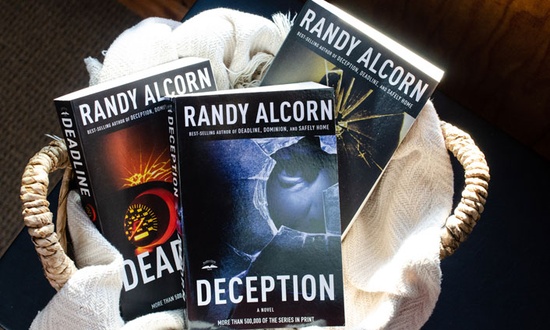Imagination and truth go together in good literature. Because a story is “made up” does not necessarily mean it is not true. It means it is imaginative. Fiction is basically literature about imaginary people and events (and includes mysteries, fantasy, drama, science fiction, and more). The definition of fiction is to shape, to fashion, to feign. Feigning is imagining-making visible images for invisible things. Why should I read fiction if it is just made up? I read it because it helps me pay attention to life. Reading good fiction is not simply a frivolous activity for those who aren’t serious about life. I read because I am serious, and find that fiction says true things I might never hear any other way.
We struggle over a theology of imagination. We find it hard to believe that imagination is God’s idea and that it is among the chief glories of human beings. Of all creation, human beings are the only creatures who have the ability to transcend the smallness of self and imagine something different than what they know. God is imaginative; we are made in his image.
Children are wonderfully imaginative; they are born that way. Bread crusts on highchair trays become trucks; dolls cry and need to be rocked. Imagination is to be encouraged, trained, developed, enjoyed. That is why we surround children with picture books that tell stories, and why we read to them about adventures in far places. Dr. Seuss lets them put their tongues and their imaginations around words that make up stories. Yet even before the advent of the book, people were drawing images in the sand and making up legends. Imagination is not only a human capacity; it is an awesome gift.
Imagination and truth-telling is an oxymoron to some people. Once, when I was giving a talk about children’s books, a mother told me that she never read anything to her children that was not literally true. Since animals do not talk, she would not allow books that give speech or personality to animals. “I want my children to trust me,” she said, “and if I give them untrue stories, they will suspect that I don’t tell the truth about other more important issues.” I felt sorry for her children because she had so little understanding of the role of imagination in enjoying the world around us. Her view of truth was too narrow, so narrow that she would have to conclude that the Bible gives us untruths when it speaks of the stars “singing together” or trees “clapping their hands.”
Uneasiness about imagination leads to a narrow view of God and the gifts he has given men and women. In his book Reversed Thunder, Eugene Peterson writes, “Imagination opens things up so that we can grow into maturity-worship and adore, exclaim and honor, follow and trust. Explanation keeps our feet on the ground; imagination lifts our heads into the clouds. Explanation restricts and defines and holds down; imagination expands and lets loose.” Christians have a large investment in the invisible and for them imagination is essential, for it is only by means of the imagination that we can see the reality of the whole.
The Bible is a book of literature; it is a work of art. It is imaginative. It is an anthology containing poetry, adventure stories, mysteries, stories about heroes, heroines, and villains, and romantic love. Ten verses in Job extol the glory of the hippopotamus and thirty-five verses speak of the strength of the crocodile. Morning stars sing for joy, trees clap their hands, and the sunrise is likened to a bridegroom coming out of his tent. Its worlds are marked by beauty; its imagery illumines the text. God seems to have an awesome regard for imagination and beauty in communicating truth.
“Does it make any difference,” writes Clyde Kilby, formerly a Wheaton College English professor, “that the Book we look upon as holy comes to us in literary form or abstract doctrine or systematic theology?” Christianity is the most literary religion in the world-a religion in which Word has special sanctity.
Everyone has been gifted with an imagination that longs to be fed. Some are more imaginative than others and are a special gift to all of us. Without imagination there would be no new hypotheses, inventions, or experiments. Albert Einstein himself said, “The gift of fantasy has meant more to me than my talent for absorbing positive knowledge.” Nobody lives in a totally objective world, only in a world filtered by imagination. Imagination allows us to soar and to wonder. Someone had to imagine everything that we take for granted, from a fork to an airplane.
How does imagination help us grasp truth? C. S. Lewis observed that a person can either have an experience or understand it, but never both at once. His theory was that only in a story do we have a possible solution to this dilemma. A story invites us to have, through our imaginations, a concrete experience of truth. Maybe that is why Jesus told stories. In a story I get to see my own experiences from a different angle and understand new truths about myself and the world.
Imagination can be tainted with evil or infused with good; whether it is good or evil depends on the heart of the person doing the “imagining.” In that sense, imagining is like all our other gifts to be used for good or ill. We don’t worship imagination; we simply recognize the capacity to imagine as a uniquely human and God-given gift. The right use of imagination in writing can make truth come alive and jump off the page.
Excerpted from Honey for a Woman’s Heart by Gladys Hunt, Zondervan, Grand Rapids, MI, 2002, pp. 33-36


